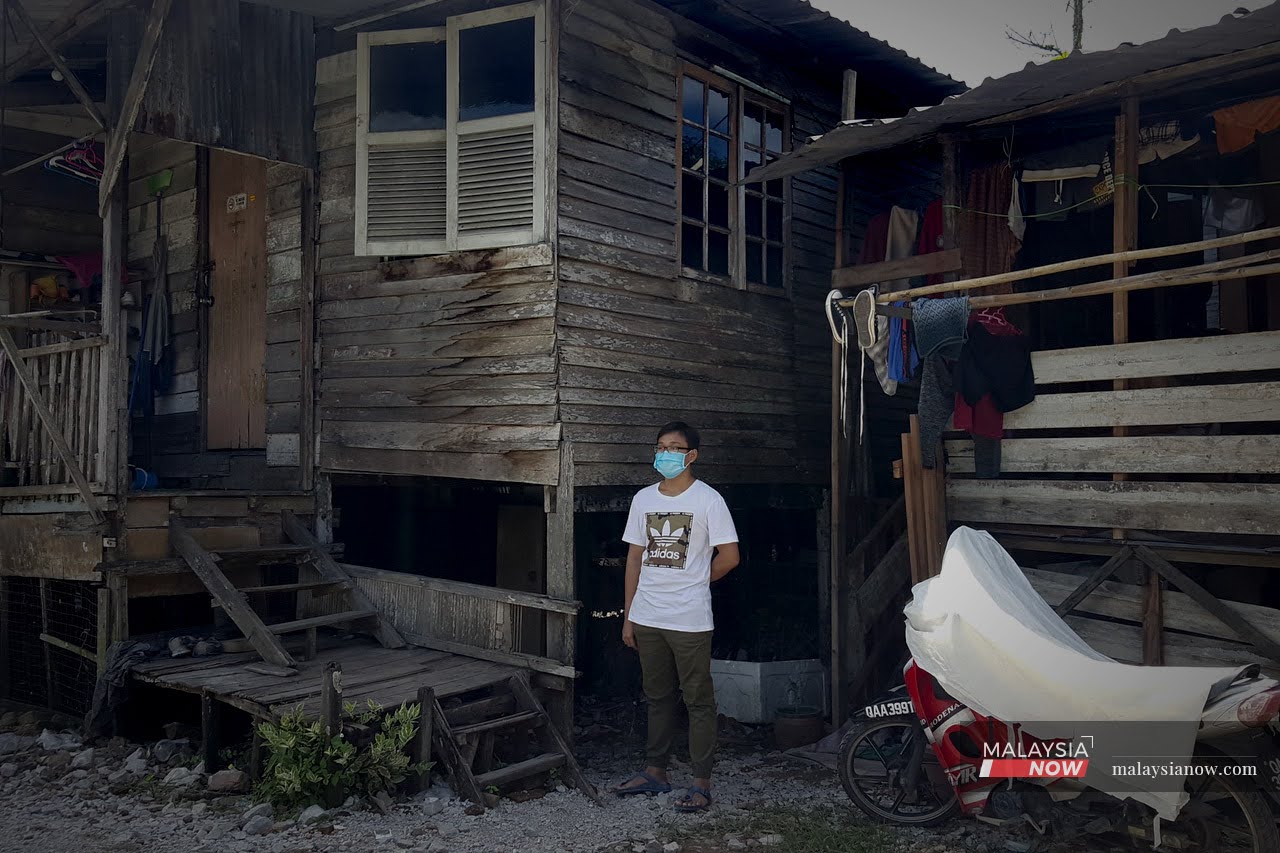Covid-19 jeopardises a dream from Kuching slums
But young Albert is determined to become a doctor despite his home environment and the pandemic wreaking havoc on education across the country.
Just In
For as long as he can remember, Albert has wanted to be a doctor.
It’s a challenging dream for the 16-year-old, made even more so by the arrival of Covid-19.
As it is, he and hundreds of thousands of students across the country lost a significant chunk of the last academic year to disruptions which upended traditional classrooms and pushed lessons online.
Although students sitting for public examinations were allowed to physically return to school this week, others like Albert will remain in the virtual classroom for now.
For Albert, though, his home environment makes this harder than it would be for many of his peers.
Albert lives in a squatter colony at Kampung Jalan Chawan 13, near the Kuching city centre. This effectively means that he and his family are camped on an illegal site.
There is no solid waste management, no proper sanitation, no safe water supply and no electricity.
Most of the houses there are in dilapidated condition. There is no solid waste management for this site, made plain by the rubbish strewn along the pathways and under the houses.
There is also no proper sanitation, no safe water supply and no electricity.
But none of this is enough to dampen Albert’s ambition.
Although there is no electricity supply in his house, he makes do with what he has.
“Usually I will do my homework at school,” he told MalaysiaNow. “Either early in the morning or after school ends.”
At night, he revises his lessons by candlelight. Sometimes he uses a kerosene lamp or a battery-powered light.
“But it’s difficult because if I read the book, I need to write notes. That’s why I prefer to do it in school.”

Even simple things like charging a mobile phone requires a trip to a nearby shop where the shopkeeper charges about RM5 per hour.
While Albert is determined to do what he can, others are less motivated.
Senorita Choi, who has three children, told MalaysiaNow that the slow internet connection had caused many students there to lose interest in their lessons. The lag also means that they miss out on many parts of the class.
She is worried about her own children who have been bringing home poor grades.
“When others have already logged into their online class, I’m still here waiting for the line to stabilise.
“If they miss their class, they have to ask their classmates,” she said.

But internet connection is not the biggest concern as most of the settlers do not even have proper washroom facilities. Instead, they make do with makeshift toilets.
The water meter is shared among several families who take turns to carry home their daily supply.
Each family appoints a leader to collect payments and to draft the water-fetching schedule. The bill is then shared accordingly, Choi said.
“We collect water in the morning because it can only be obtained for one or two hours.”
Subscribe to our newsletter
To be updated with all the latest news and analyses daily.



